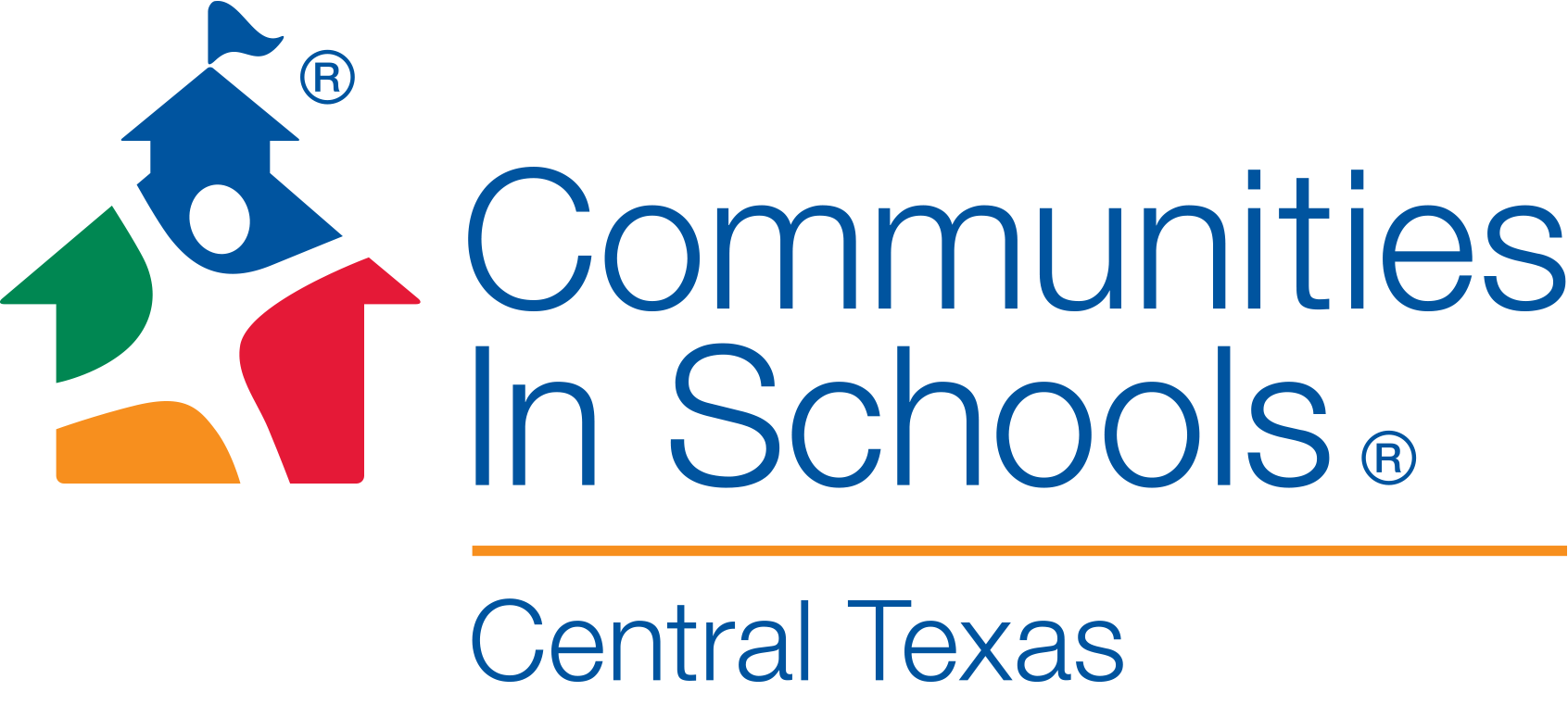This is a heartbreaking time and we are grieving the tragic events that occurred at Robb Elementary School.
The Communities In Schools of Central Texas community stands with our neighbors in Uvalde, Texas.
Below are resources for parents and educators to use when speaking to students about what happened.
Advice for parents when talking to students about tragic events
- Process Your own feelings. Before you can have a conversation with your child or teen about school shootings and gun violence, you need to process your own feelings about the issue. Children will pick up on your stress and anxiety, so you want to be sure you have worked through any issues you have with the subject matter. This way, you can approach the conversation in a calm and reassuring manner.
- Take an age-based approach. Follow your child’s lead. Rather than preparing a speech or giving them a lecture on what to do if someone brings a gun to school, ask open-ended questions and allow them to direct the conversation. If your children don’t know what happened and don’t bring it up, you don’t necessarily have to fill in the blanks. If they bring up an incident, you can ask, “What did you hear?” or “What do you think is going on?” then follow up with “What do you think about that?” and “What is it like for you?” and then “What can we do if that happens?” and “What are you seeing at school?”
- Help children feel secure. This is important for children of all ages. Tell them that you’re always there for them. Provide emotional support by saying, “It’s OK to feel sad — or to not even know how you’re feeling.”
- Look out for signs of anxiety, generalized worry, or traumatic stress. When bad things happen, children can develop a fear that it will happen to them, their family, or their school. Allow your child to express all of their concerns, even if they don’t seem directly related or even realistic. Validate their feelings, talk about ways they can calm themselves in times of intense stress (including calming thoughts, breathing exercises, and activities), and make it clear that you’re always available to talk things through. If their anxiety or sensitivity increases, you may want to talk to your pediatrician.
Resources in Response to the Robb Elementary School Shooting
In response to the Robb Elementary School shooting in Uvalde Texas, the National Child Traumatic Stress Network has developed resources to help children, families, educators, and communities navigate what they are seeing and hearing, acknowledge their feelings, and find ways to cope together. These resources include:
- Talking to Children about the Shooting
- Helping Youth After a Community Trauma: Tips for Educators (En Español)
- Talking to Children: When Scary Things Happen (En Español)
- Talking to Teens about Violence (En Español)
- Tips for Talking to Students about Violence
- Coping After Mass Violence: For Adults
- For Teens: Coping After Mass Violence(En Español)
- Helping School-Age Children with Traumatic Grief: Tips for Caregivers (En Español)
- Helping Teens with Traumatic Grief: Tips for Caregivers(En Español)
- Helping Young Children with Traumatic Grief: Tips for Caregivers (En Español)
- Guiding Adults in Talking to Children about Death and Attending Services
- After a Crisis: Helping Young Children Heal
- Age-Related Reactions to a Traumatic Event
- Once I Was Very Very Scared – children’s book for young children
- After the Injury—website for families with injured children
- Health Care Toolbox—website for pediatric health providers working with injured children
- Pause-Reset-Nourish (PRN) to Promote Wellbeing (En Español) (for responders)
Psychological First Aid
The NCTSN also has resources for responders on Psychological First Aid (PFA; En Español). PFA is an early intervention to support children, adolescents, adults, and families impacted by these types of events. PFA Mobile and the PFA Wallet Card (En Español) provide a quick reminder of the core actions. The PFA online training course is also available on the NCTSN Learning Center.
Additional PFA resources for schools include:
- Psychological First Aid for Schools (PFA-S) – Field operations guide
- Providing PFA-S: For Health-Related Professionals – handout
- Providing PFA-S: For Principals and Administrators – handout
- Providing PFA-S: For School Support Staff – handout
- Providing PFA-S: For Teachers – handout
From the National Mass Violence and Victimization Resource Center
- Transcend (mobile app to assist with recovery after mass violence)
- Rebuild your Community: Resources for Community Leaders
- Media Guidelines for Homicide Family Survivors
- Timeline of Activities to Promote Mental Health Recovery
- Self-Help: Resources for Survivors
- E-learning Courses: Trainings for Clinicians
- Resources for Victim Assistance Professionals
From the Center for the Study of Traumatic Stress at the Uniformed Services University
- Grief Leadership: Leadership in the Wake of Tragedy
- Leadership Communication: Anticipating and Responding to Stressful Events
- Coping with Stress Following a Mass Shooting
Disaster Helpline
SAMHSA has a Disaster Distress Helpline – call or text 1-800-985-5990 (for Spanish, press “2”) to be connected to a trained counselor 24/7/365.

How to Talk to Kids About School Shootings
Take an age-based approach to discussing news of school shootings with kids.
- How to talk to kids about school shootings
- How to talk to your child about gun violence & school shooting
- Going back to school after a tragedy
- School Counselor Resources/After-a-School-Shooting
- Helping your children manage distress in the aftermath of a shooting
